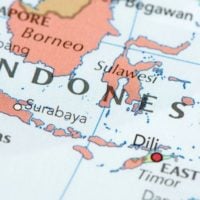Deadline: 31-Oct-21
The Africa Transitional Justice Legacy Fund (ATJLF) is inviting proposals for its grant to support transformative and pioneering interventions in transitional justice processes in Africa.
The ATJLF will seek to collaborate with new and existing actors in the field of transitional justice in West Africa and beyond.
They seek to build on existing gains and add value to ongoing or upcoming initiatives by forming strategic partnerships, building networks and joining collectives, with a view to promoting genuine accountability, locally relevant justice, contextually driven reconciliation and transformative reparations.
Thematic Areas
The Fund will focus on specific transitional justice themes and sub-themes as they apply to the seven selected countries, as follows:
- Truth, Justice & Accountability: Under this theme, ATJLF will:
- Support locally-driven truth-telling and truth-seeking, restorative justice oriented and communal healing initiatives that promote truth, acknowledgment and rectification for victims, and accountability for mass crimes and serious human rights violations.
- Support local initiatives geared towards reducing barriers to fair and accessible justice in transitional societies.
- Encourage and invest in innovative projects that seek to demand respect for the rule of law and ensure equal access to justice.
- Encourage and invest in innovative projects that seek to demand respect for the rule of law and ensure equal access to justice.
- Reparations: Under this theme, the ATJLF will:
- support projects or initiatives that engender transformative reparations for victims, survivors and societies in post-conflict or post-dictatorship transitions.
- support initiatives that amplify economic, social and cultural rights (ESCR) in transitional justice processes and interventions, with a view to promoting economic justice especially for women and young people and persons with disabilities.
- ATJLF will support projects that promote and explore linkages between traditional mechanisms for conflict resolution and prevention with locally driven socio-economic development initiatives.
- support community-based and community-centered initiatives that aim to promote social cohesion, transform existing societal relationships characterized by subordination and socio economic injustice and inequality as well as gender or other forms of exclusion in all seven countries.
- Institutional Reforms and Enabling Environment: Under this theme, the ATJLF will:
- Support regional, sub-regional and national initiatives that seek to accelerate institutional and legal reforms (where strategically possible).
- Support regional, sub-regional and national initiatives that seek to accelerate institutional and legal reforms (where strategically possible).
- Support new media and technology initiatives to generate, increase and sustain awareness, community engagements and an inclusive environment for successful reform processes (directed at journalists, editors, documentary filmmakers, musicians, artists, etc.) to help in the dissemination and mediatization of institutional reforms.
Reasons
The ATJLF supports locally relevant and contextually appropriate transitional justice interventions in the countries of focus for the following reasons:
- To rethinking and remodeling transitional justice approaches in the sub-region
- To create positive changes in people’s lives (mainly survivors of conflicts and brutal dictatorships)
- To consolidate existing gains in transitional justice initiatives in West Africa and beyond, through strategic partnerships with continental and sub-regional intergovernmental institutions
- To serve as a route for supporting skills development and knowledge management initiatives of civil society, local and national government authorities and regional institutions, and
- To create lasting positive impacts at country, regional and continental level.
Types of Grant
The ATJLF will award three (3) categories of grants;
- Small grants ranging from $ 5,000 to $ 10,000 – these will be awarded to very small CBOs & community groups for short term projects with quick turnaround impacts. These grants will also afford this category of organizations / groups to benefit from capacity assessment with the possibility of graduating to larger grants at a future date.
- Main grants: from $ 10,000 to $ 50,000 – these will focus on providing support to CSOs, NGOs, registered survivor groups & networks.
- Catalytic grants – these will range from $ 50,000 but not exceeding $ 70,000 and will be available to support projects with innovative and / or cutting-edge activities, sound policy influence / change initiatives. This category of grants will also include regional bodies or CSOs working across the region on policy frameworks that are designed to impact the region. These are discretionary grants and will be awarded on a significant needs and relevance basis.
Geographical Coverage
- The Fund is limited to West Africa, specifically Cote D’Ivoire, Gambia, Guinea, Liberia, Mali, Nigeria (focusing on the Northeast) and Sierra Leone. Only applications from organizations based in and working in these countries will be considered.
Eligibility Criteria
To be eligible to receive grant from the ATJLF, applicants must be;
- A registered CSO or CBO operating in one of the seven countries of focus, (if not registered then at least 2 other credible CSOs that have been in existence for over 5 years must provide references for you)
- Must have at least three (3) staff members (including the founder / director)
- Must have a functional bank account in country of operation
- Must have some operational systems in place – accounting processes and procedures, defined management structure, evidence of monthly / quarterly / semi-annual or annual financial accounting
- Must be known or embedded in communities that have experienced atrocities or human rights violations and have strong connections and networks with victims, survivors and the community in which they operate
- Must already be working (or willing to work) on human rights and transitional justice issues in the identified communities in the countries of focus.
For more information, visit https://atjlf.org/grants/









































